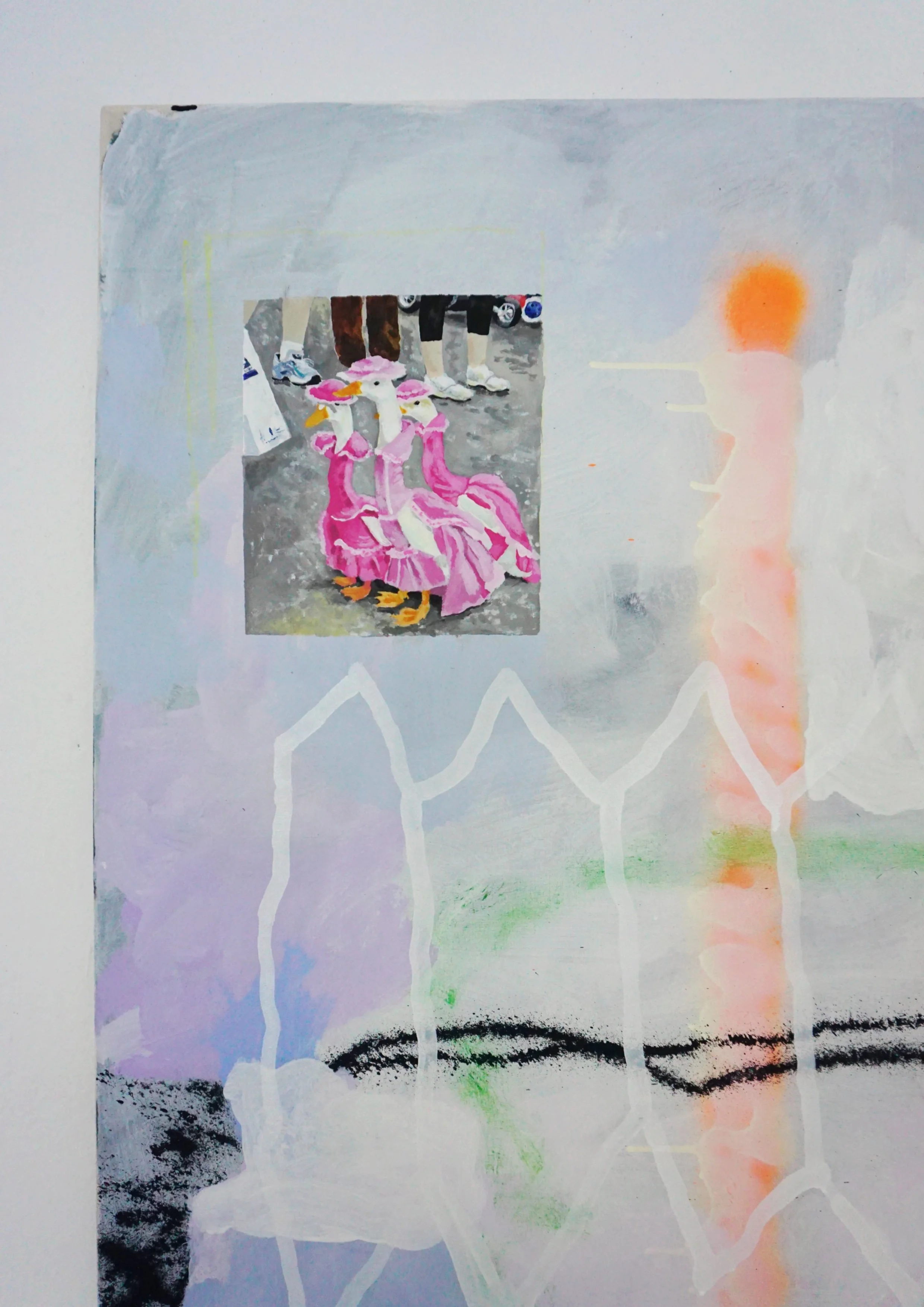IMPROPER DOSE NO. 2/2023
-by Barbora Horská (Curator/Editor-in-chief of Improper Dose)
Now, finally, A Matter of Gaze!
Since the first collaboration with the mental health advocacy foundation Made of Millions in 2020, we have organized four independent exhibitions dedicated to different aspects of mental health—to destigmatize the topic, offer resources and understand the connections between various areas of our lives and how they affect and, at the same time, are affected by mental health. More and more departing from the conservative understanding of mental health (issues), we entered this year the terrain of neurodiversity.
The solo show of transdisciplinary artist Niña Lilli Lerch provided the environment for vulnerable discussions about personal neurodivergent experiences with the systems designed from and for neurotypical perspectives.
The fact that these systems hardly serve anyone, regardless of their neurotype, appeared in one way or another in all three Expert Talks accompanying the exhibition. In a conversation with Teach for Austria fellow Magdalena Strauch, we shed light on the disadvantages children in Austria face when it comes to the public school system. Hristina Hristova and Morgan Glew from the association "im spektrum" brought us closer to an autistic experience and challenged our understanding of inclusion, and we concluded this series with Niklas Satanik and a debate about alternative education options in Vienna—their possible benefits as well as their limitations.
But this edition of Improper Dose holds more than excerpts from these conversations. Iris Jung, another member of "im spektrum", expands in her essay on the topic of inclusive pedagogy, while Anna Gaberscik describes what it is like to be an anti-racism educator of color in Austria. Elizabeth Spouse brings interviews from the last two Improper Sessions we hosted in 2023—XING and Raven and Phan—and a brand-new comic by Pedro del Real Lavergne explores school as a black box—the uncertainty connected to having a school-aged child. The closing essay by Oscar Cueto offers a poetic reflection on the melancholy and fear many of us feel in the face of current events.
One of the aspects resonating throughout the project's programming was the toxic stress's effect on learning abilities. Experiencing any form of violence or other threat to physical and emotional security—including the attachment figure's safety—or disparity has a strong influence on brain development, which then impacts the ability to focus, learn and self-regulate, in addition to corporeal stress. Regardless of our upbringing, feelings of anxiety can overwhelm us as much in adulthood, so if you are having a problem with "business as usual,"—there is not only a moral but a neurological reason for it!
True inclusion requires diversity to become a default state in which critical thinking is paired with mindful sensitivity and high relational literacy. In a world where millions of children are displaced, living under the poverty line, experiencing domestic or state violence, and are victims of armed conflicts and genocides while the so-called "developed" countries are blocking peace resolutions, censor anti-occupation voices in institutions otherwise benefiting from decolonial discourses and policing anti-war activists, the future where every child has equitable access to education seems unattainable.
But we must not despair! We might need to accept that our efforts won't have an immediate effect, though we must not abandon hope that a world where our minds are liberated together with the land is possible. Educating ourselves and standing firm against injustice, regardless of who the injustice is happening to, could be the first step. As the confidence and courage grow with our actions, dismantling the oppressive systems—imperialist white-supremacist capitalist patriarchy* first and foremost—will follow.
With thoughts in Palestine, Congo, Sudan, Ukraine, Artsakh, and all other places we don't speak enough about...
Until next time.
* term famously used by author, cultural critic, and feminist theorist bell hooks

